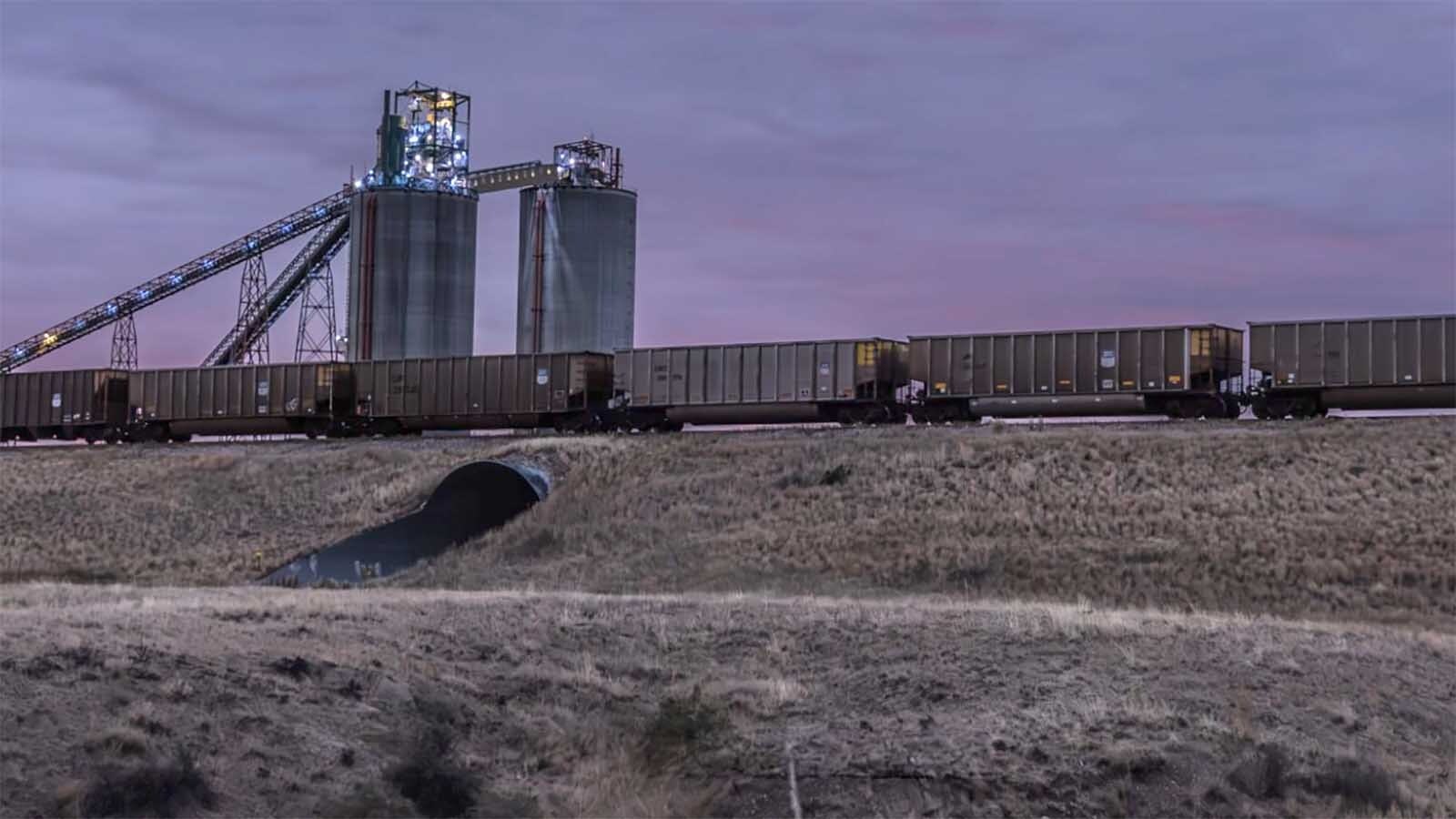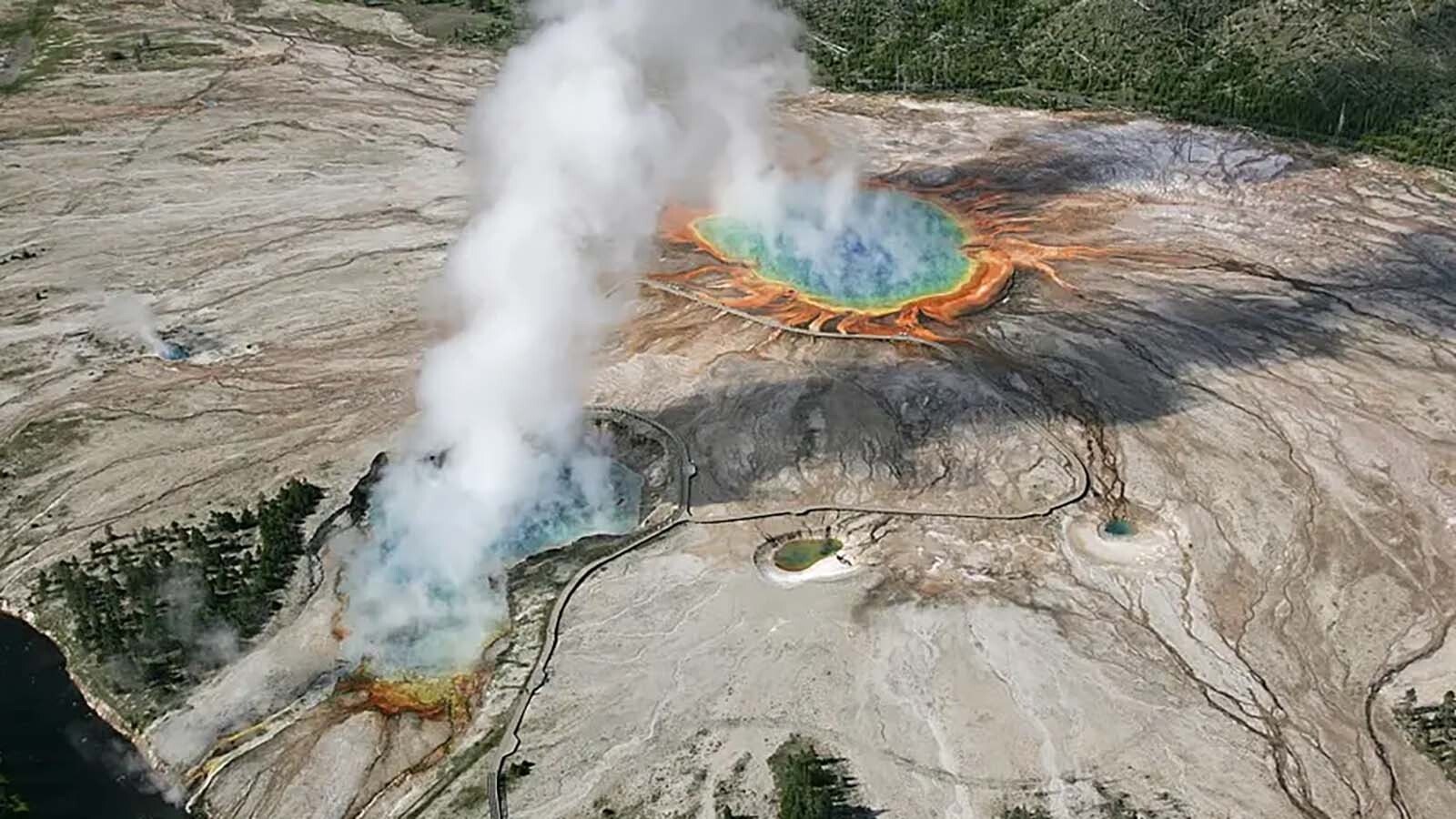Mining jobs in the Power River Basin just got a boost from the Trump administration with the Department of the Interior's approval of a mining plan modification that will unlock 14.5 million tons of federally owned coal at the Antelope Mine in northeast Wyoming.
"Currently, the mine site straddles the county line," said Converse County Commissioner Jim Willox about the mine’s footprint in his county and Campbell County. “There was a time we used to laugh that if a shovel went to the right, it went to Campbell. If the shovel went to the left, it was Converse.”
While the coal being extracted comes from the Campbell County side of the mine, Willox said the regional benefits of the mine extension for both counties.
"By extending the life of that mine and the employment that can be there, it's a really positive thing for Converse and Campbell counties," Willox said. "A lot of workers, whether they're with the coal mine or with the railroad associated with it, are Converse County residents."
The approval extends the mine's operations by about six months through 2037, according to a spokesperson at the U.S. Department of Interior Office of Surface Mining Reclamation and Enforcement (OSM).
The spokesperson told Cowboy State Daily that the decision fits into broader administration initiatives across the Powder River Basin and includes at least two mines in Montana.
"Approval of mining plan modifications at the Antelope, Rosebud and Spring Creek mines align with national energy and economic goals by advancing the administration's priority to strengthen U.S. energy independence and increase domestic coal production,” stated the OSM. “Additionally, it supports grid reliability, enhances energy security and helps insulate the U.S. from global supply disruptions."
When it comes to maintaining a reliable supply, Willox added that, "The market is driving a lot of things that are affecting coal, but we need to make sure we still have coal available, not only as a thermal source for generating power, but there's a lot of research going into what other uses are there for coal.
“And with this extension, it helps assure there will be feedstock available, for traditional uses and new uses yet to be determined."

Workforce Stability
For Morryah McCurdy, executive director of The Enterprise, an economic development agency in Douglas, OSM’s support of the Antelope Mine helps underpin the region’s workforce.
"By extending the life of the Antelope Mine, protecting 359 full-time positions, that's not just about the mine,” McCurdy said. “It's about ensuring stability for households, schools, local businesses and our whole county.”
McCurdy emphasized the quality of employment opportunities the mine provides, noting that even entry-level positions offer substantial wages in an energy-focused economy.
"A lot of their smaller-end jobs kind of start off in the, like, $30 an hour range," she said, referring to positions such as washing trucks. "If somebody is making 30 bucks an hour, I can only imagine what people who are in the actual coal work. They are making probably a lot more than that.
"Not having 359 people looking for primary jobs means that those people stay in our community. Otherwise, they might have to leave in order to find comparable employment.”
Federal Decision
The Antelope Mine is operated by Navajo Transitional Energy Co. It employs conventional surface-mining techniques and ships coal from an on-site rail facility to power plants and industrial customers across the country.
NTEC Spokesperson Lauren Burgess told Cowboy State Daily that after a “rigorous assessment period,” the OSM issued the decision with a final environmental assessment and finding the expansion will have “no significant” environmental impact.
A host of state and federal officials cheered the decision.
"The Trump administration is delivering on its promise to revitalize American coal and unleash our nation's energy potential," said Secretary of the Interior Doug Burgum in a Friday statement. "This decision boosts American jobs, enhances energy security and supports communities that rely on coal to power their homes and economies."
The action approves the West Antelope II South Tract Mining Plan across about 857 federal acres with reserves of low-sulfur, low-ash, subbituminous coal.
"As global instability continues to threaten energy markets, the need for reliable, domestic coal has never been clearer," said Acting Assistant Secretary for Land and Mineral Management Adam Suess in the statement. "This action underscores our commitment to commonsense permitting, environmental stewardship and energy dominance."
Good Start, More Needed
Wyoming Gov. Mark Gordon praised the decision in a statement, and accused the Biden administration of halting efforts to expand the mine. Gordon also stated the Antelope Mine isn’t the only Wyoming operation vying for renewed federal support.
"While this announcement is a positive step forward, we are also keenly aware of a pending decision on the Black Butte Mine expansion in Sweetwater County, which was also halted by the previous administration," Gordon stated.
Wyoming Republican U.S. Rep. Harriet Hageman connected the Antelope Mine approval to broader legislative efforts supporting Wyoming's coal industry.
"The Department of the Interior's approval of the mining plan modification for the Antelope Mine is not only a major win for Wyoming, but a win for all national consumers of Wyoming energy," Hageman said in a statement. “It is important to recognize that it works hand in hand with the One Big Beautiful Bill Act (OBBBA). The OBBA strengthens the long-term viability of operations like Antelope Mine by lowering federal royalty rates and make more land available for coal leasing.”
U.S. Sen. Cynthia Lummis also said the decision is good news.
"Great victory for Wyoming and all Americans seeking reliable, affordable, and secure energy independence. Wyoming is the key to protecting our nation's energy future," she said in a statement.
Rusty Bell, CEO of Energy Capital Economic Development in Gillette, said that availability is the headline here — that “it shows the willingness of the federal government to continue leasing the resource.”
“When you extend the life of the mine, you extend the life of miners,” he said.
The Antelope Mine approval comes alongside similar decisions affecting the region.
Westmoreland Mining's Rosebud Mine in Montana, which provides coal to the power plant in Colstrip, also received a life extension from the Interior Department on Friday.
That decision now enables the recovery of about 33.75 million tons of federal coal and extends the Rosebud Mine’s operation through 2039.
The Rosebud supports more than 300 high-paying jobs, and the coal produced generates 1,500 megawatts of electricity at the Colstrip Power Plant — enough to power more than 1 million homes, according to DOI.
The projected annual royalties to be paid to the federal government are over $9 million.
Back in March, a mine expansion approval for NTEC’s Spring Creek Mine’s extended the operational life by 16 years, enabling the production of about 39.9 million tons of federal coal and supporting 280 full-time jobs.
David Madison can be reached at david@cowboystatedaily.com.





